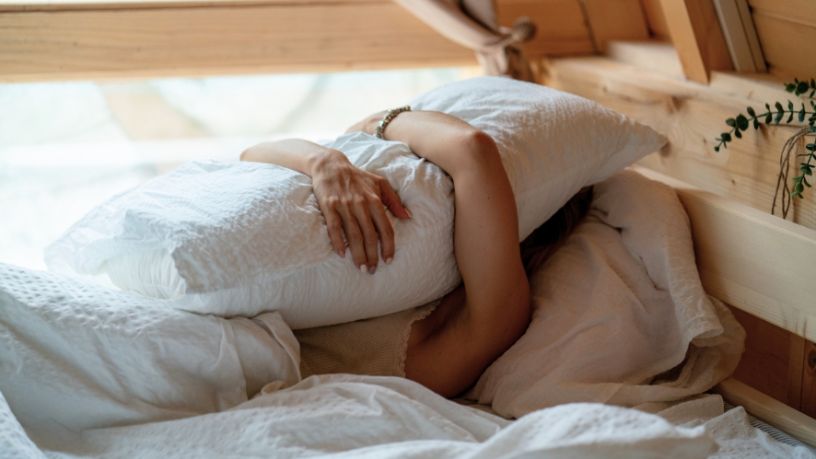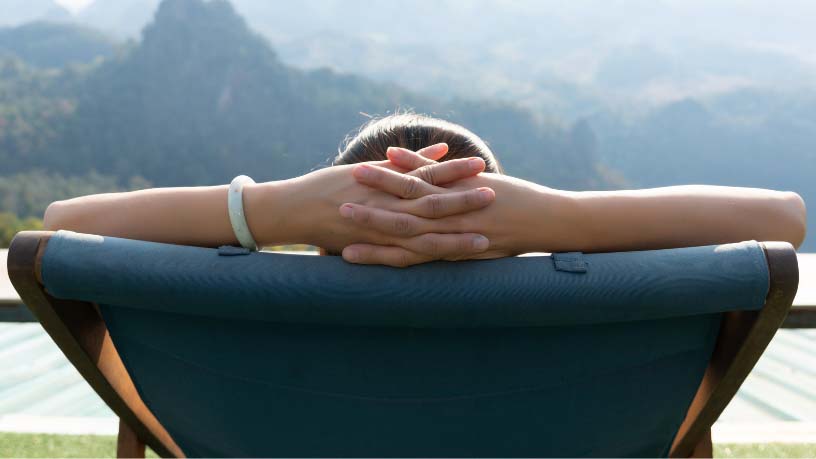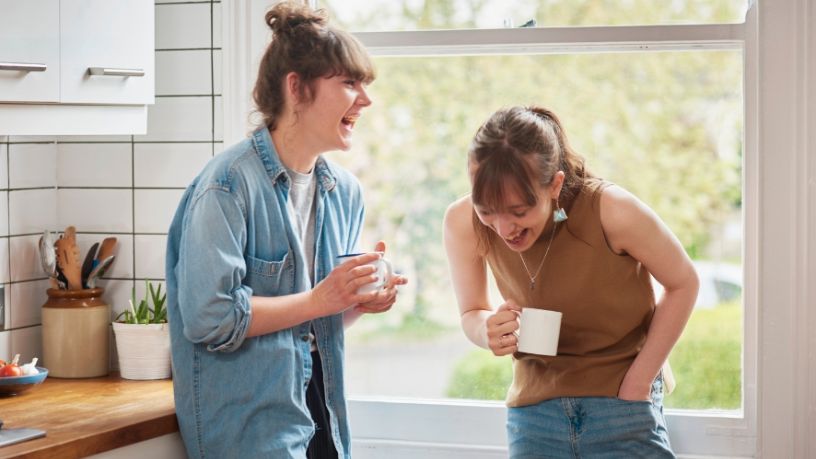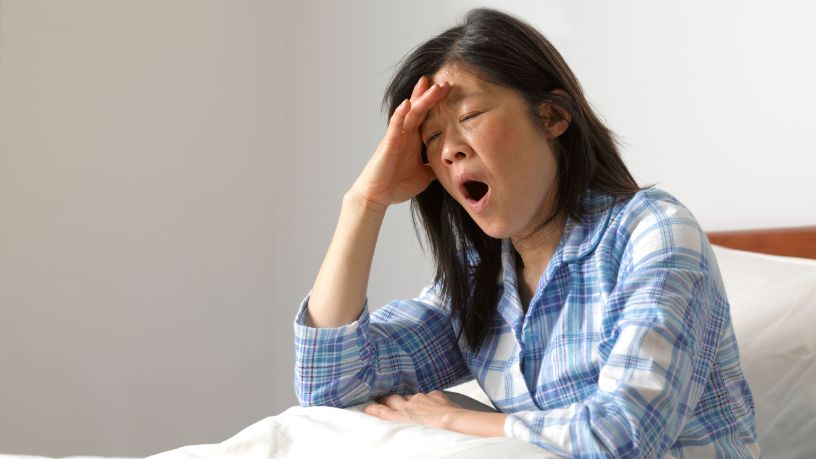Sleep is vital for good physical and mental health.
On this page
Key takeaways
The quality of your sleep is important and can be influenced by a range of factors.
You should aim to make your bedtime routine a priority.
Why does sleep matter?
Sleep is one of the most important functions needed for good health and wellbeing. Research shows good sleep increases positive emotions and decreases negative ones.1 Lack of sleep, on the other hand, can trigger changes in negative emotional processing, including irritability, emotional volatility, and anxiety.
Sleep is also important for the following functions:
- brain. It improves memory, learning, decision making and reaction time
- mood. It helps you regulate emotions
- immunity. Sleep supports a healthy immune system
- metabolism. It helps you maintain a normal functioning metabolism. A lack of sleep can lead to weight gain, for example, due to its effect on your metabolism
- hormones. Some hormones are released during sleep, such as the growth hormone, which is important for muscle recovery and function, and cortisol, which spikes in the morning to help you wake up.
How much sleep is enough?
How much sleep you need varies according to age:2
- Newborns (zero to 3 months): 14 to 17 hours
- Infants (4 to 12 months): 12 to 15 hours (including naps)
- Toddlers (one to 2 years): 11 to 14 hours (including naps)
- Pre-schoolers (3 to 5 years): 10 to 13 hours (including naps)
- School children (6 to 13 years): 9 to 11 hours
- Teenagers (14 to 17 years): 8 to 10 hours
- Adults (18 to 64 years): 7 to 9 hours
- Older adults (65+): 7 to 8 hours.
What causes sleep deprivation?
Not getting enough sleep might simply be the result of too many late nights, or it might be caused by not having enough good-quality sleep.
Common reasons include:
- environmental factors, such as too much light or noise in your bedroom
- disruptions to your circadian rhythm, the ‘sleep-wake’ cycle
- age, medication and health conditions
- lifestyle factors, including diet and caffeine, alcohol and narcotic consumption
- sleep medications, which may sometimes negatively affect your sleep.
According to Australian research, quality matters when it comes to sleep.3 The study found poor sleep quality is linked to worse functioning, regardless of how long a person actually sleeps.
Ways to improve sleep quality
Try these tips to help you fall and stay asleep.
Be consistent
Aim to go to bed and wake up at the same time every day, even at weekends. Sleep expert Professor Shona Halson says a consistent bed-wake regime tends to lead to better-quality sleep.
She suggests we try not to deviate by more than an hour either way and recommends going to bed only when you’re actually sleepy. Forcing yourself to try to fall asleep can increase your frustration, making it harder to achieve.
Sleep hygiene
Give yourself the best chance to sleep well every night by taking notice of your body clock, having a good sleep environment, turning off tech and avoiding caffeine and other stimulants.
Professor Halson says it’s important to prepare properly for bedtime.
“Slowing down or easing into bedtime with non-stimulating activities like meditation or reading is a great approach,” she says.
Another suggestion is avoiding electronic screens at least 30 minutes before bed. Try donning some blue light glasses to filter out any blue light emitted from digital devices if tech is a must.
Keeping your room cool, dark and quiet is also a must for a good sleep environment. If heat is a problem, cool showers before bed and/or cold (hot) water bottles are great ways to cool down.
Avoid late-afternoon naps
Even though napping can be a great way to deal with sleep deprivation, it can also affect sleep quality if not done correctly.
In the afternoon, it’s okay to power down for 20 to 90 minutes between 1pm and 4pm. Any later than 4pm can negatively affect that night’s sleep.
Sleep aids
A 2021 study4 found that white noise (a static sound like ‘shhh…’) helped mask the environmental noise of the neighbourhood and improve sleep quality.
Another study5 found that constant pink noise (a lower pitch and flatter sound than white noise, like wind rustling through trees or steady rain) can also increase stable sleep by reducing brain wave activity.
There are some effective sleep and relaxation apps, such as Calm and Headspace that can help relax the mind prior to nodding off with meditations, breathing programs, music, and sleep stories as well as white and pink noise options. Other ideas are reading a book, deep breathing exercises or having a short meditation to calm your mind.
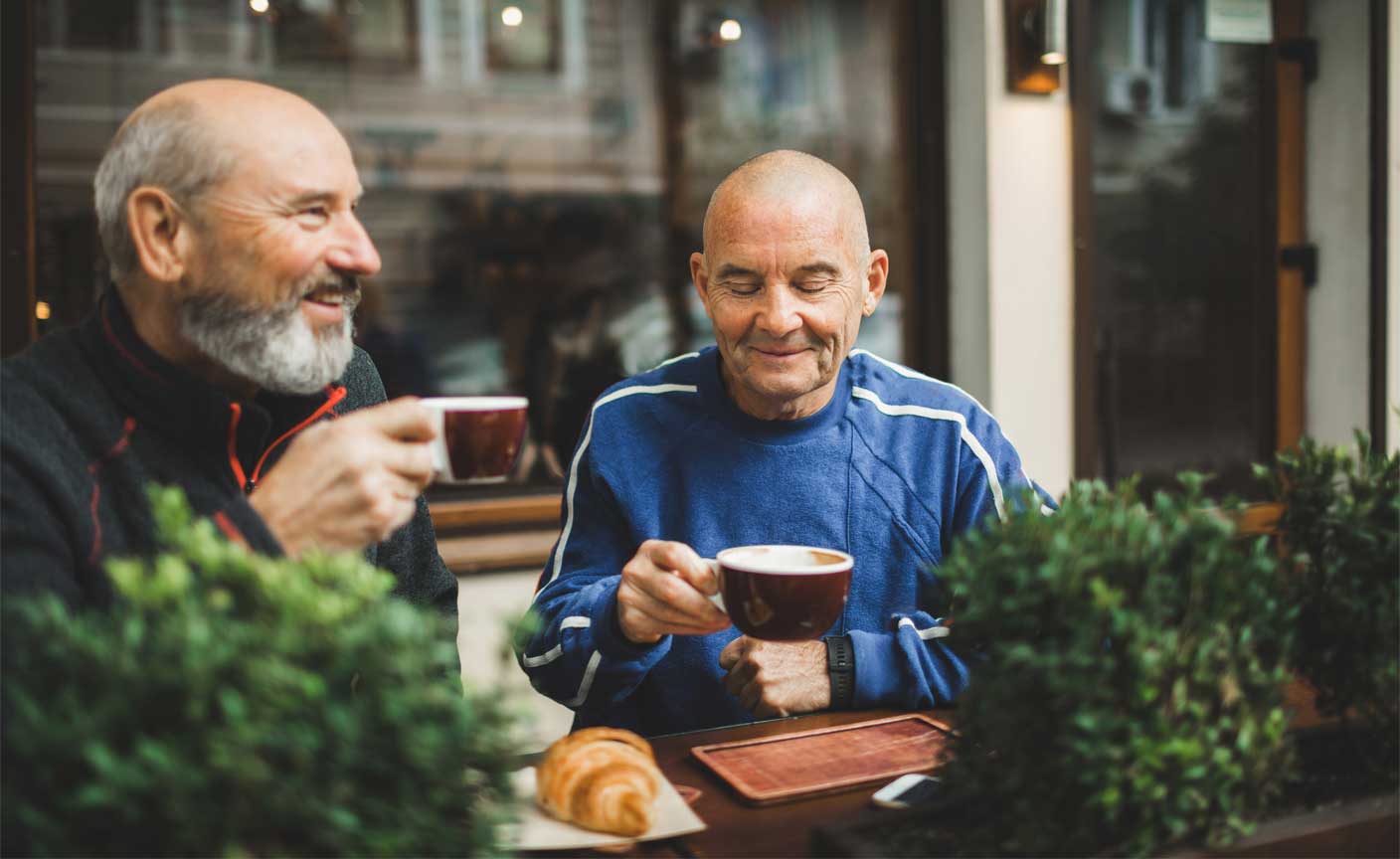

At Bupa, trust is everything
Our health and wellbeing information is regularly reviewed and maintained by a team of healthcare experts, to ensure its relevancy and accuracy. Everyone's health journey is unique and health outcomes vary from person to person.
This content is not a replacement for personalised and specific medical, healthcare, or other professional advice. If you have concerns about your health, see your doctor or other health professional.
1Better Health Channel. (2022). Mood and sleep. Victoria State Government, Department of Health.
2Sleep Health Foundation. (2024). How much sleep do you really need?. Sleep Health Foundation.
3Lallukka, T., Sivertsen, B., Kronholm, E., Bin, Y. S., Øverland, S., & Glozier, N. (2018). Association of sleep duration and sleep quality with the physical, social, and emotional functioning among Australian adults. Sleep Health, 4(2), 194-200.
4Ebben, M. R., Yan, P., & Krieger, A. C. (2021). The effects of white noise on sleep and duration in individuals living in a high noise environment in New York City. Sleep Medicine, 83, 256-259.
5Zhou, J., Liu, D., Li, X., Ma, J., Zhang, J., & Fang, J. (2012). Pink noise: effect on complexity synchronization of brain activity and sleep consolidation. Journal of Theoretical Biology, 7(306), 68-72.
You might also like...
8 tips to help you sleep when it's hot
Hot summers are great until it’s time to get some sleep. We’ve come up with 8 simple tips to turn hot, sweaty nights into a peaceful, restful sleep.
Breaking the stress-sleep cycle
A good night’s sleep is one of the best ways to manage stress, but ironically, it’s incredibly difficult to drift off when you’re stressed.
How diet affects your sleep
What you eat and drink during the day can have a big impact on how well you sleep at night. So how exactly does your diet affect your sleep?
Everything you need to know about sleep apnoea
Sleep apnoea is a common sleep disorder, though it is often under recognised and under diagnosed. Find out how it might affect you or your partner.


